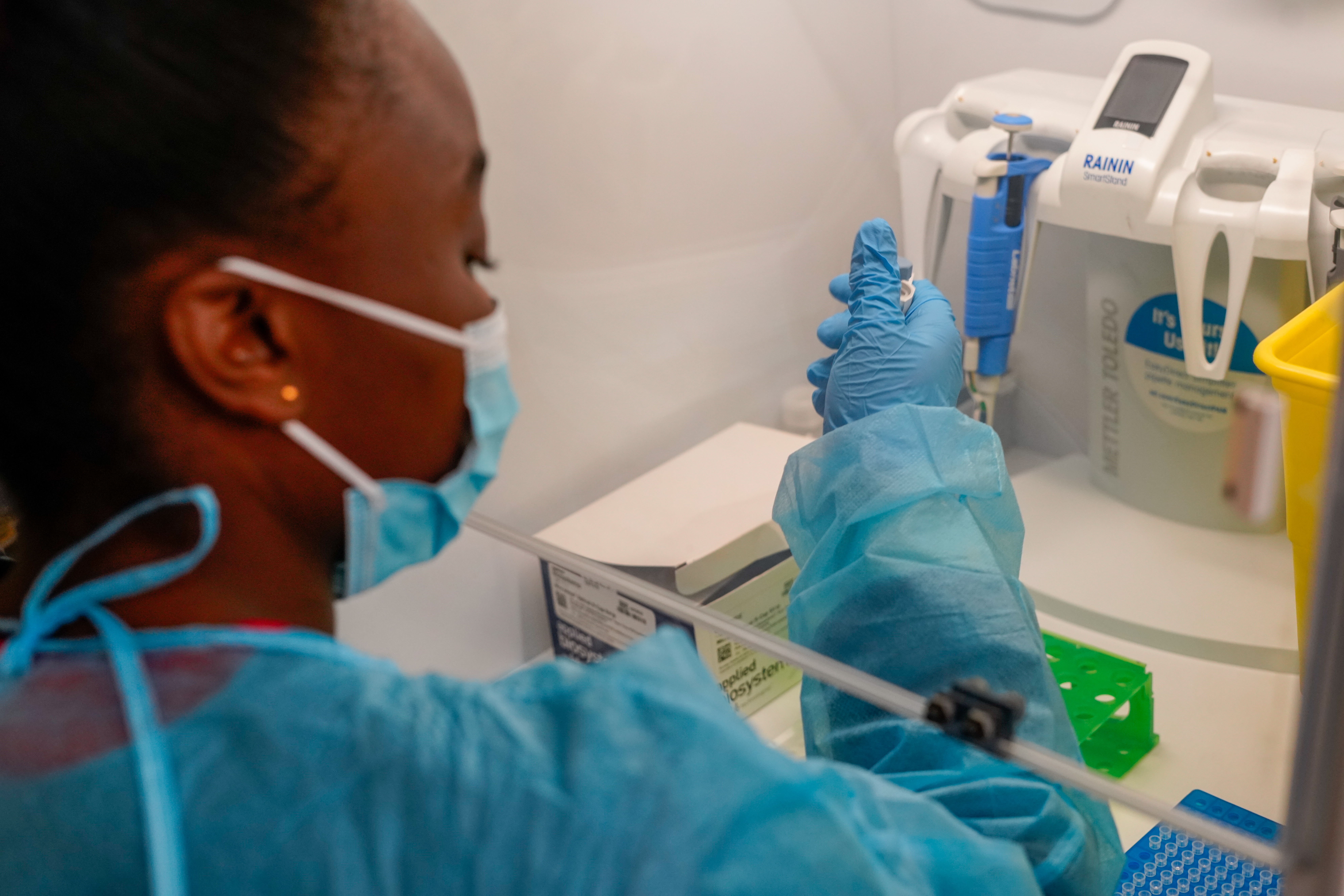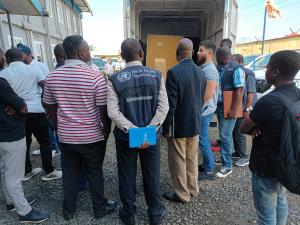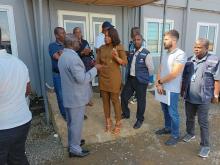The Journey to Liberia's Genomic Sequencing capacity for COVID-19 and other priority diseases

In a rapidly changing world where emerging and re-emerging diseases pose potential risks to public health, genomic sequencing has been identified as one of the tools that aids in the rapid identification of variants of concern, development of diagnostic tests and other outbreak management tools. Genomic sequencing technology is relatively new in many African countries, and its importance became more pronounced in 2021 following the circulation of the COVID-19 variants of concern (Delta, Alpha and Beta).
On February 8th, 2021, Liberia sent its first batch of 20 COVID-19 samples to the Noguchi Memorial Institute for Medical Research (NMIMR) in Accra, Ghana, for sequencing. The released results revealed the presence of the Alpha variant. Subsequent batches of samples sequenced indicated the presence of the Delta variant, which was linked to the increase in COVID-19 cases and disease severity between May to July 2021 while the spike in cases in 2022, due to Omicron variant that was also detected. However, the turnaround time for results often took up to 12 weeks, hampering timely surveillance and decision-making efforts during the pandemic response. This prompted the Ministry of Health to request support from the World Health Organization (WHO) and partners in building in-country capacity for genomic sequencing.
Initially, WHO supported the training of staff at the National Reference Laboratory, equipping them with the necessary skills to conduct genomic sequencing, including bioinformatics analysis. With support from USAID, WHO provided essential equipment, infrastructure, and consumable supplies, including the installation of a high tetra computer, an on premise data server, a power bank system, an uninterrupted power supply (UPS), and a sequencing machine, reagents, and consumables. The sequencing platform was established, and security measures were reinforced with enhanced doors and windows. "We consider WHO our mother unit for health. Members of our team underwent training in Ghana, Nigeria, and Gambia on bioinformatics and genomic sequencing. As a hub that services all health facilities across Liberia, including private facilities, we are happy that with the arrival of these sophisticated machines, we can run our tests in-country, and results will be made available in the shortest possible time compared to the past", said Mr. Aaron T. Momolu, Laboratory Technician for Quality Diagnostics at the National Reference Laboratory.
The WHE Team Lead for WHO Liberia , Dr. Julius Monday, believes this is a step in the right direction in combating pandemics and epidemics, “Enhancing surveillance through strengthened pathogen genomic sequencing that is integrated into the broader public health architecture, will enhance Liberia's Integrated Disease Surveillance and Response (IDSR) effectiveness in line with the Transforming African Surveillance Systems and Global Genomic Surveillance Strategy for pathogens with pandemic and epidemic potential 2022–2032 initiatives," stated Dr. Monday.
With the newly established facilities, Liberia not only gained the ability to conduct genomic sequencing of the SARS-CoV-2 virus but also expanded its capabilities for other epidemic and pandemic-prone diseases such as influenza, Lassa fever, M-pox, measles, and Ebola Virus Disease. This broader sequencing capability holds tremendous potential for enhancing disease surveillance and response in the country.
During the handover ceremony of the sequencing equipment and supplies, Dr. Clement Peter, WHO Representative to Liberia, expressed his delight in making this meaningful contribution to the country. "With these investments, Liberia now joins other African countries conducting genomic sequencing in the region to enable effective detection and response to SARS-CoV-2 variants and other epidemic and pandemic-prone diseases, which will greatly improve the quality and effectiveness of disease surveillance in the country. The COVID-19 pandemic has highlighted the importance of tracking the virus variants for public health. While WHO has supported the establishment of genomic sequencing capacity in the country, there is a need to consider how to sustain it in the event of future outbreaks," said Dr. Peter.
The establishment of in-country genomic sequencing capacity will transform Liberia's response to COVID-19 and other priority diseases by linking genomic sequencing data with surveillance and case management for timely and appropriate response measures. Moreover, the long-term benefits extend to opportunities such as vaccine development.
Expressing her excitement, Dr. Jane A. MaCauley, Director-General of the National Public Health Institute of Liberia (NPHIL), is optimistic that the support will elevate Liberia's decision-making on preparedness and response to public health threats. "Liberia appreciates the support from WHO to establish genomic sequencing capabilities for both COVID-19 and other priority diseases, including antimicrobial resistance, using a One Health approach. The bioinformatics and data server capacities built will help analyze and interpret the sequencing data for timely decision-making and actions", said Dr. MaCauley
Through collaborative efforts, WHO and USAID have empowered Liberia to overcome the challenges of delayed genomic sequencing for COVID-19 and other infectious diseases. The investment in infrastructure, training, equipment, and supplies has not only strengthened Liberia's Capacity for genomic surveillance of variants of concern for COVID-19 but also paved the way for improved priority diseases surveillance, early detection of emerging variants of concern, leading to more effective public health interventions.
WHO is partnering with African countries to enhance pathogen surveillance through genome sequencing, with a current total of 41 established laboratories. This collaborative effort aims to detect and respond efficiently to COVID-19 variants. Liberia's journey serves as a beacon of hope, demonstrating the transformative impact of building local capacity in the face of global health challenges.

